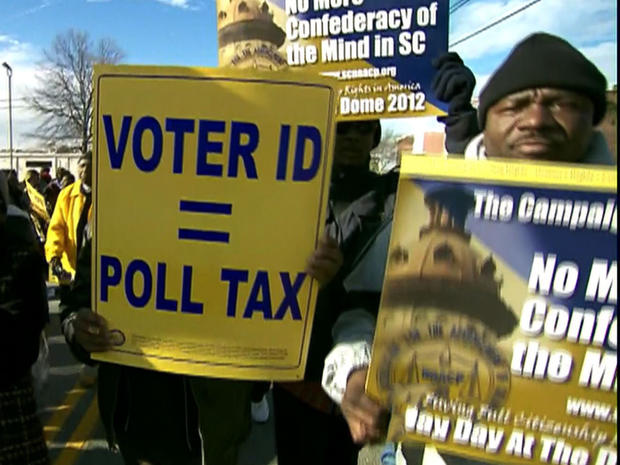Liberals keep up the pressure on ALEC
(CBS News) After successfully pressuring an influential conservative legislative group to pull back its involvement in social issues, liberal groups are launching the next iteration of their fight against the group, known as ALEC.
Joined by a handful of Democratic state officials, the grassroots organization Progressive Change Campaign Committee (PCCC) announced today it will be targeting "bad Democrats" who are affiliated with ALEC to drop their association with the group. Other organizations, like the civil rights group Color of Change, continue to pressure the corporate backers behind ALEC, which stands for the American Legislative Exchange Council.
States should be the laboratories of democracy, Democratic state Rep. Marko Liias of Washington said on a PCCC conference call. But "ALEC wants to turn our state capitals more into Dr. Frankenstein's lab," he said. "ALEC is where corporations go to quietly undermine the rights of working families."
ALEC, an association comprised of 2,000 state legislators from all 50 states and representatives of corporations, drafts templates of legislation for any state to adopt. It recently came under fire for pushing controversial measures like Florida's "stand your ground" law and voter ID laws. After liberal groups threatened to boycott its corporate sponsors, several companies like Coca-Cola and Blue Cross Blue Shield Association dropped their ALEC membership. ALEC subsequently decided to narrow its focus to economic issues.
"This is fantastic momentum. But our work is not done," PCCC wrote in an email to its grassroots supporters. "ALEC is still pushing union-busting laws, tax giveaways to big corporations, and other policies that hurt communities of color and all working families... Bad Democrats allow ALEC to claim 'bipartisan' support for extreme policies, and that's unacceptable."
According to PCCC, there are 26 states with Democratic lawmakers that belong to ALEC. South Dakota state Sen. Angie Buhl said the group's corporate agenda "is the antithesis of what we stand for as Democrats."
PCCC in the coming days will help it supporters apply pressure to Democrats in their states who are members of ALEC. The issue has already been a focal point in a Democratic primary in New Mexico, where state Senate candidate and former Rep. Benjamin Rodefer is pressuring his opponent, state Sen. John Sapien, to drop his ALEC membership. Sapien issued a press release distancing himself from ALEC, which Rodefer called "a good start."
Meanwhile, the group Color of Change -- which led the boycott threats against ALEC's corporate members -- maintains that it will continue to pressure companies associated with ALEC because the damage it did to voting rights across the nation is "irreparable."
While ALEC says it will no longer focus on issues like voter ID laws, some groups oppose ALEC's approach to economic issues just as strongly.
For instance, the nonprofit media reform group Free Press, as part of its Internet freedom campaign, pointed to ALEC as the source of state laws designed to prevent local governments from creating their own broadband networks in favor of corporate-run networks. The liberal news outlet AlterNet points out that public broadband systems can be significantly cheaper for consumers.
Democrats aligned with the PCCC effort said they don't oppose all coordinated efforts to draw up model legislation -- indeed, there are left-leaning groups like Young Elected Officials Network that do the same, though those groups don't have the reach or influence of ALEC. What's objectionable, they said, is the motivation behind ALEC legislation.
"I don't think our criticism is based on the idea of model legislation itself, it's a question of who's at the table and who's funding them," said Buhl, the South Dakota lawmaker. "Corporations [through ALEC] are pushing legislation that is meant to simply bolster their bottom line at the expense of the American people, and that's not ok."
